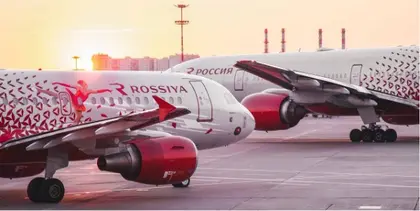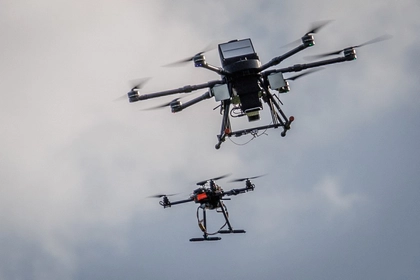The Izvestia news site reported on Wednesday, March 20, on the latest measures that Aeroflot, the Russian State airline, is trying to keep its aviation business going as the falling availability of its Western aircraft impacts ever more severely on its business.
It says the Aeroflot Group has decided to remove its business class on its budget Rossiya subsidiary’s Sukhoi Superjet 100s to compensate for the current lack of medium size aircraft to service its resort and tourist routes.
JOIN US ON TELEGRAM
Follow our coverage of the war on the @Kyivpost_official.
Removing 12 business class seats on nine of its Superjet aircraft will allow the addition of 25 economy places albeit at a cost of 331 million rubles ($3.6 million). This equates to one in seven of the available airplanes. This cost covers the purchase of unspecified aviation technical equipment, the cost of the reconfiguration work, new design documentation, and re-positioning the aircraft to Zhukovsky airport.
Reconfiguration is more than just taking out three rows of business seats but also includes modifying the kitchen module and toilet, removing the class separator, installing the five rows of economy seats, providing additional oxygen containers, replacement of luggage racks, installation of additional internal panels, emergency escape route markers and painting of interior elements.
The plan will rely on the maximum use of cannibalized parts from unserviceable Superjets which, while supposedly of domestic manufacture contain a number of critical Western components as well as the issue of limited existing warehouse stocks.

Russia Tries to Sabotage Moldova’s European Ambitions as It Did for Georgia and Belarus
PJSC Yakovlev, the manufacturer of the SSJ-100 estimates that, if the reconfiguration used a complete set of new aviation technical equipment, the cost would be closer to 900 million rubles ($10 million) – excluding VAT.
Aeroflot plans to have the modifications made this year during its high travel season which starts in September and estimates that it will be able to recover this outlay in one full year of operation. If the changes work, the airline says it may extend the idea to its other aircraft and routes.
This is just the latest attempt to overcome the problems associated with keeping sufficient aircraft operational to maintain some level of business. It is less extreme than some of the previous measures put in place to keep planes in the air.
In September Aeroflot, faced with an inability to replace worn brakes on its Airbus and Boeing aircraft deactivated the brakes on nine of its aircraft. It then instructed its pilots to land to just use thrust reversers to slow down the planes. While this is a recognized emergency procedure if brake failure occurs, it was never designed to be a permanent braking technique.
Other measures include sending aircraft to Iran for “uncertified” repair and maintenance. While Teheran is also sanctioned, at least (from Aeroflot’s perspective) it is able to get its hands on either smuggled or counterfeit components and keep at least some of its foreign aircraft flying.
In August, independent Russian media outlet Proekt reported that Aeroflot had instructed pilots and flight attendants to stop recording technical failures or malfunctions into the aircraft logbook and just verbally brief any problems to the captain.
It’s not just Aeroflot that is affected of course. Kyiv Post has run several reports on the problems faced by and the drastic measures its commercial passenger and cargo airlines have been taking as they struggle to survive. Some can be read here:
Russia Fails to Start Production of New Domestic Aircraft Citing ‘Technical Difficulties’
Kremlin’s Plan to Build 1,000 Airliners Might Be Too Late to Save Russia’s Airlines
Russian Aviation Industry Woes Continue as Airlines Forced to Extend Use of 50-Year-Old Antonovs
Russia Opens Probe into Emergency Landing of Airliner
Russia’s Crumbling Aviation Industry Suffers Yet Another Emergency Landing
HUR Hack Reveals Russian Airline Industry ‘on Verge of Collapse’
Social Media Mocks Russian Airliner Stranded in Siberian Field for Two Months
You can also highlight the text and press Ctrl + Enter






